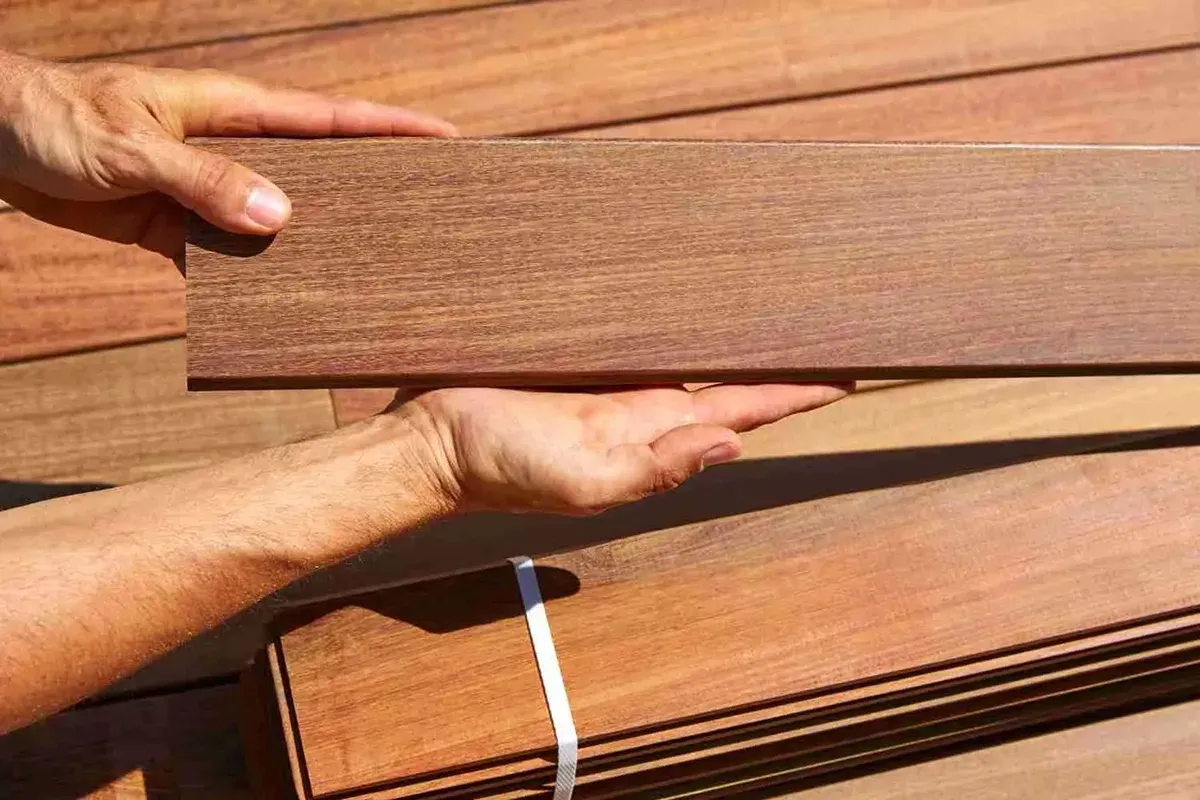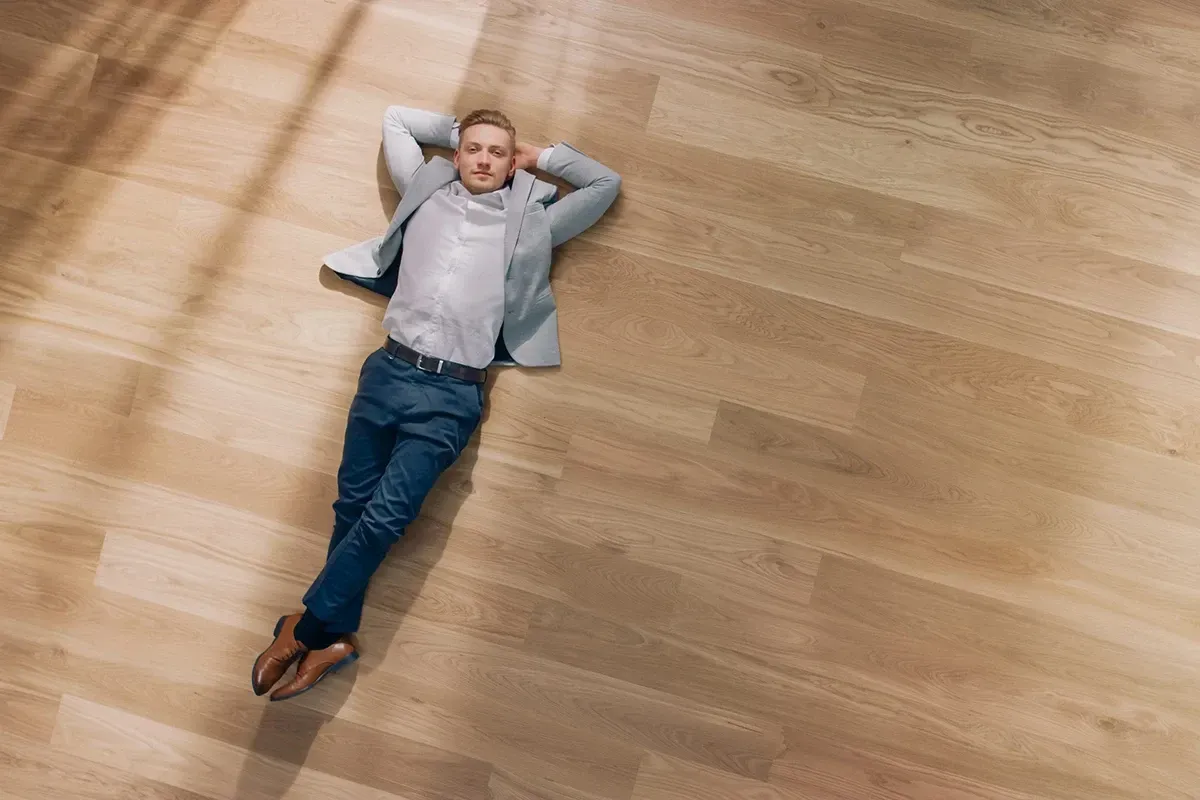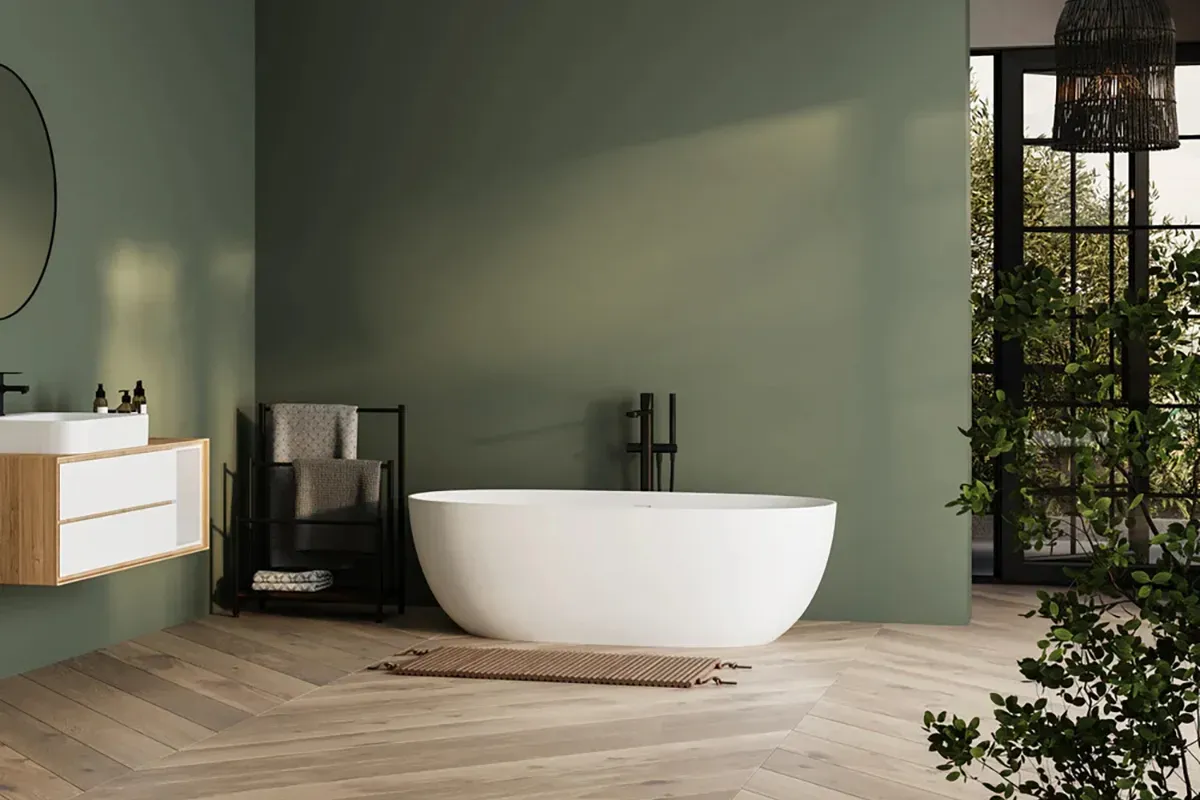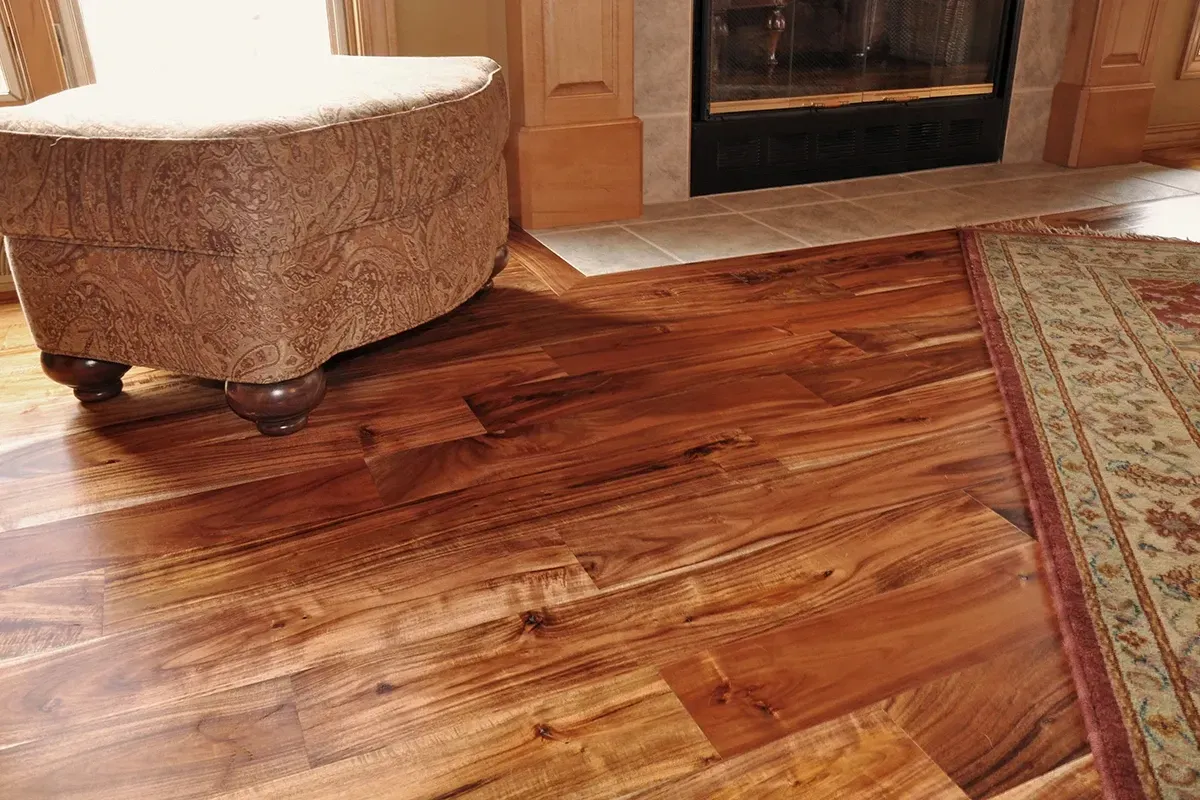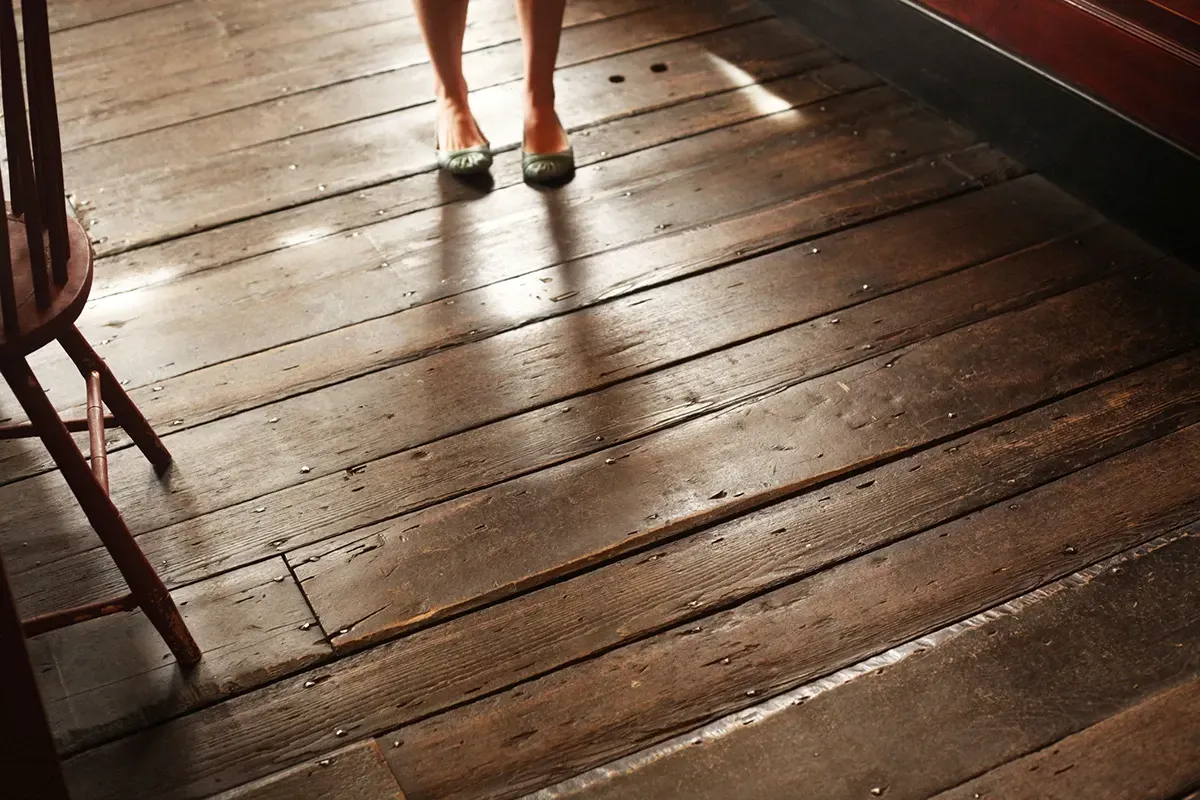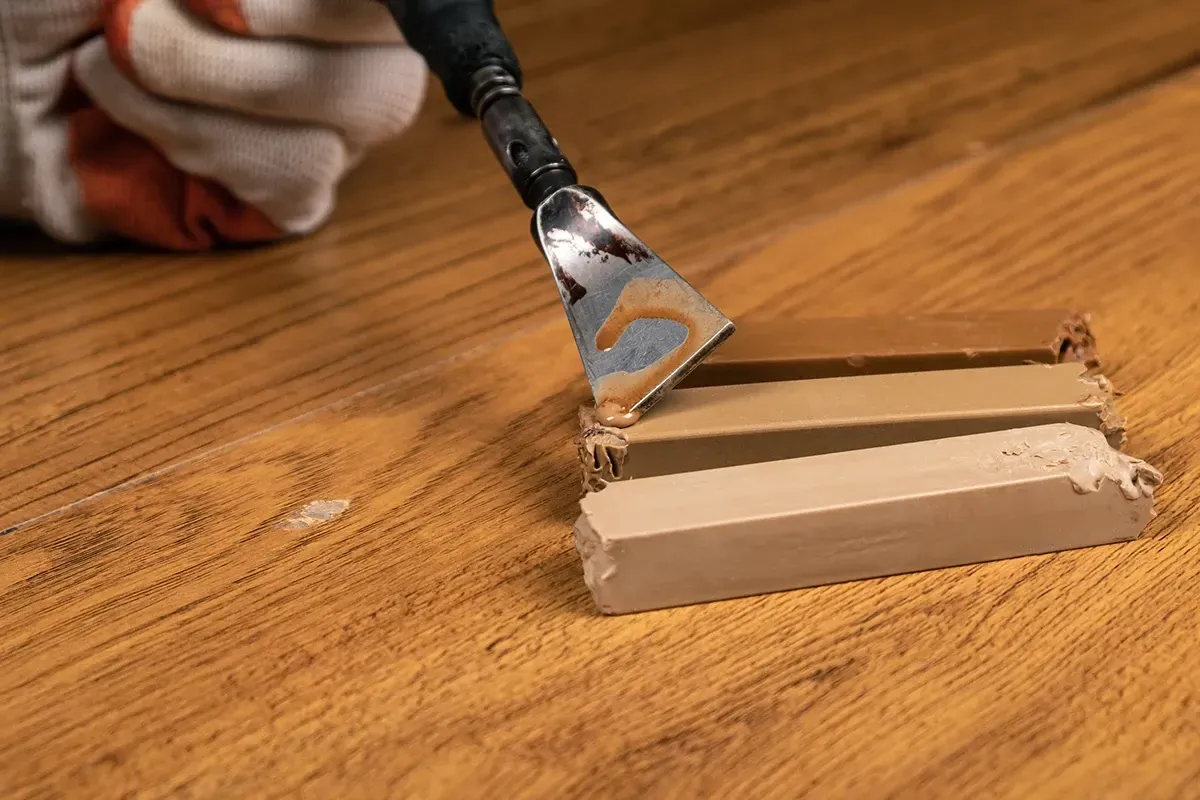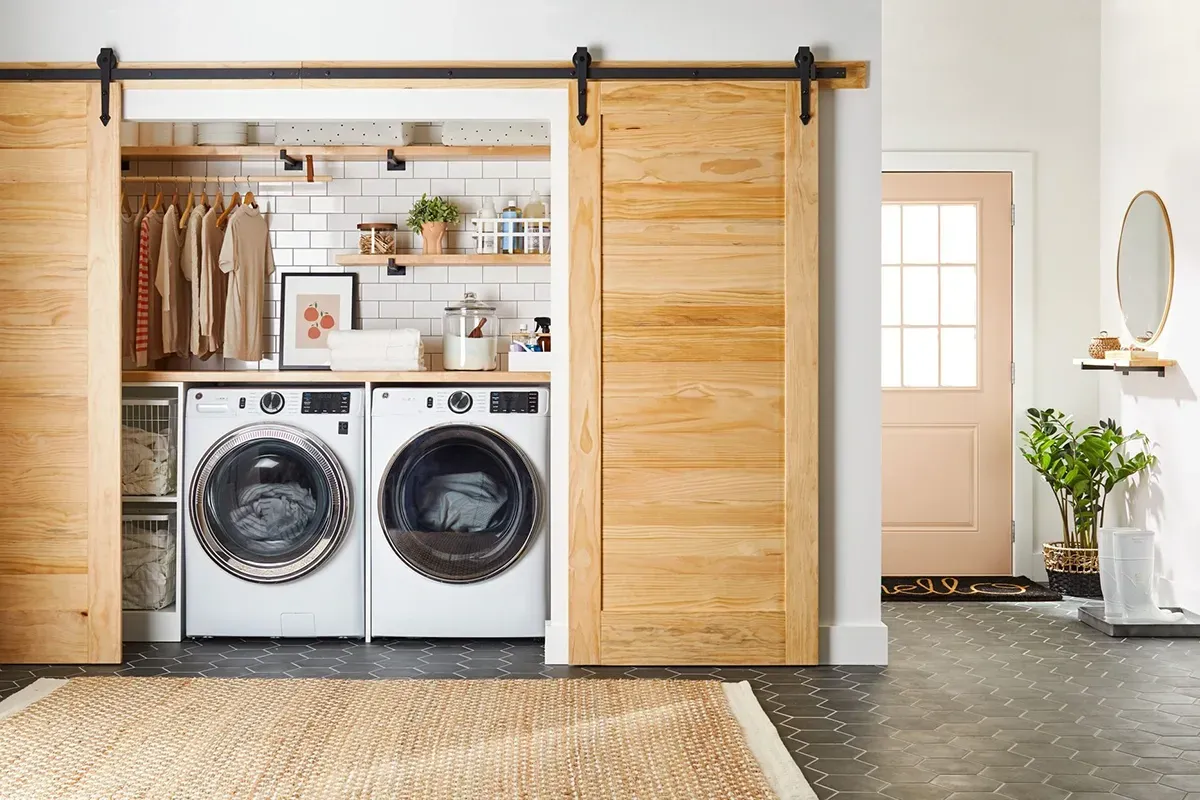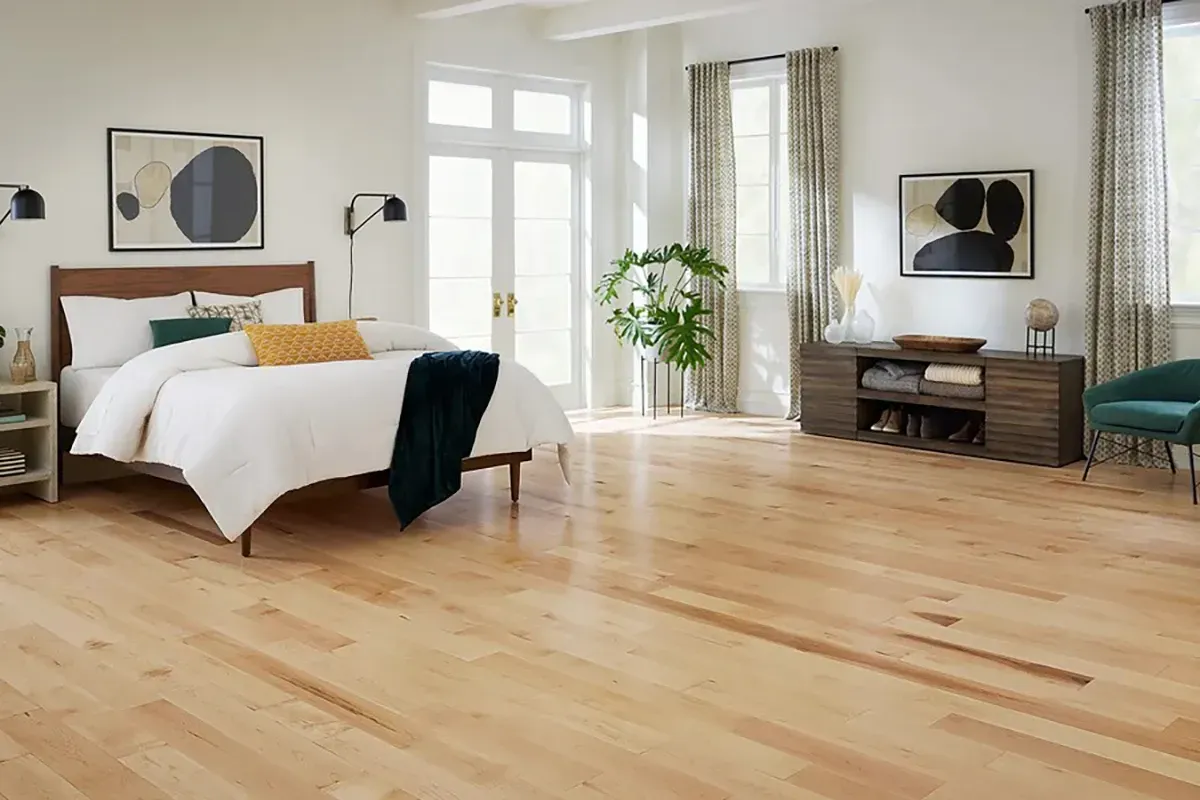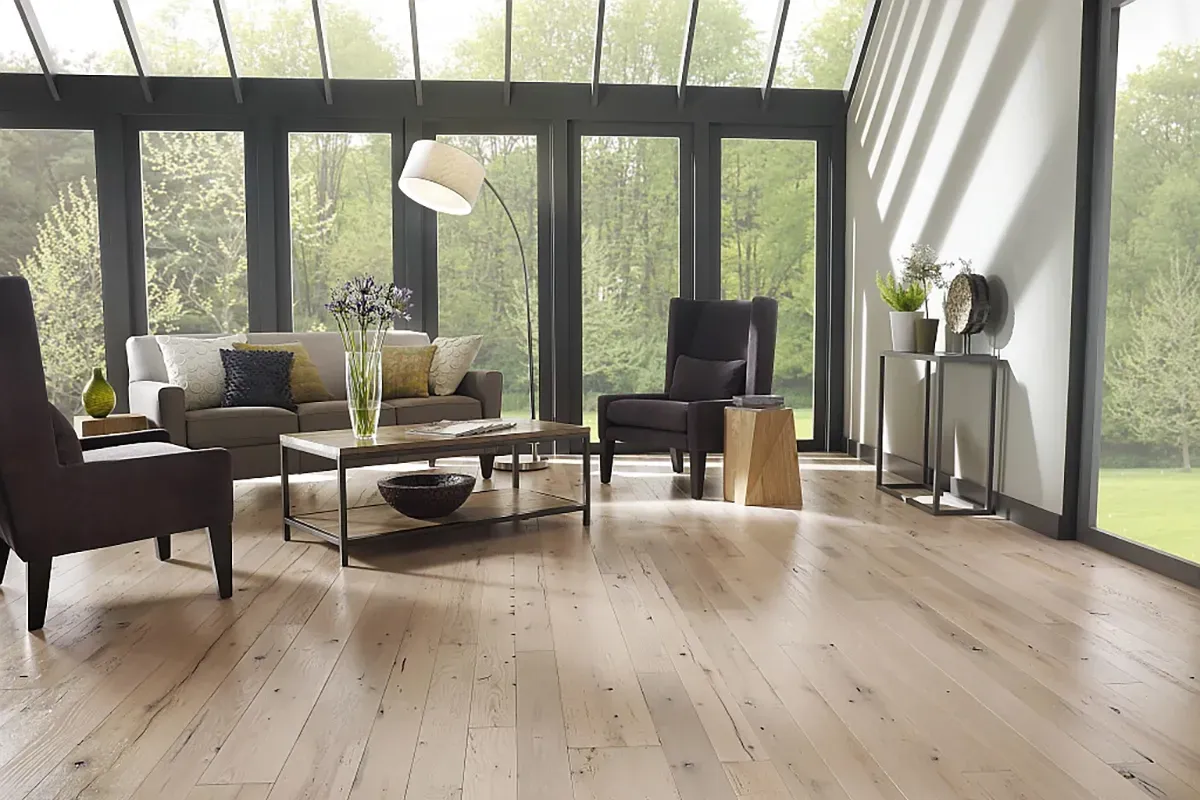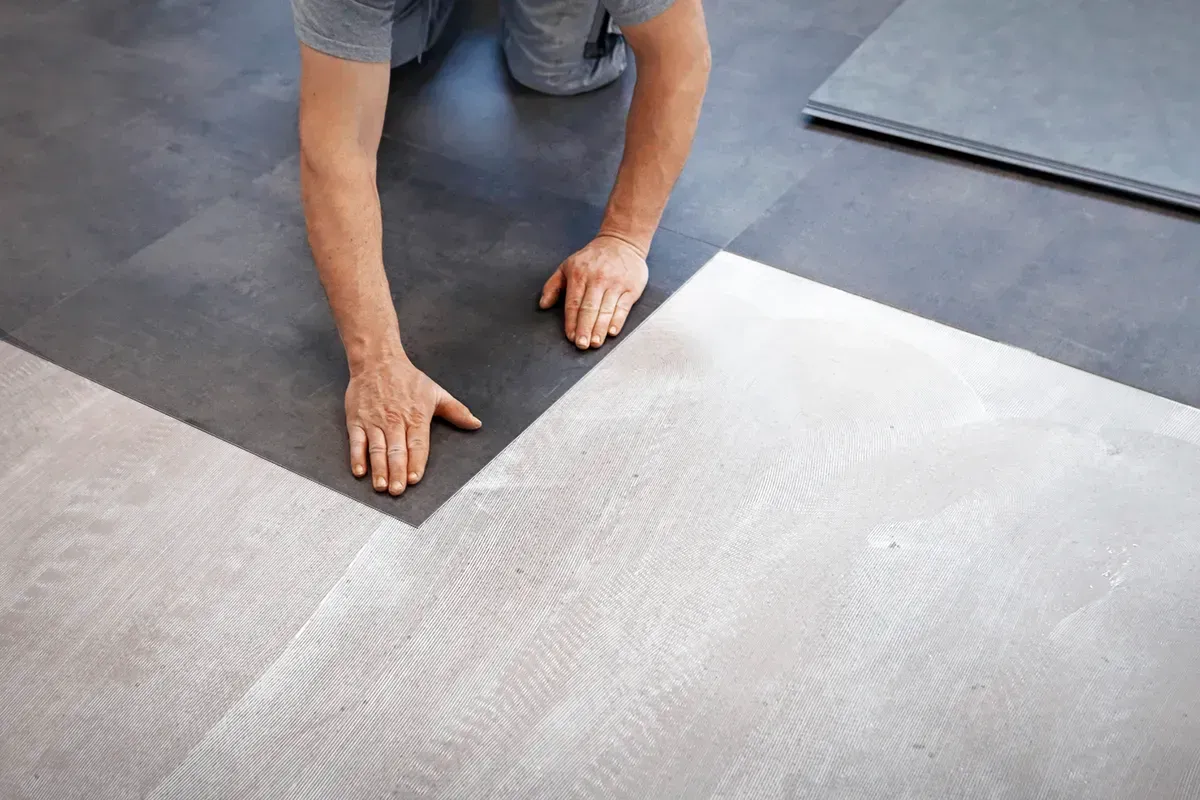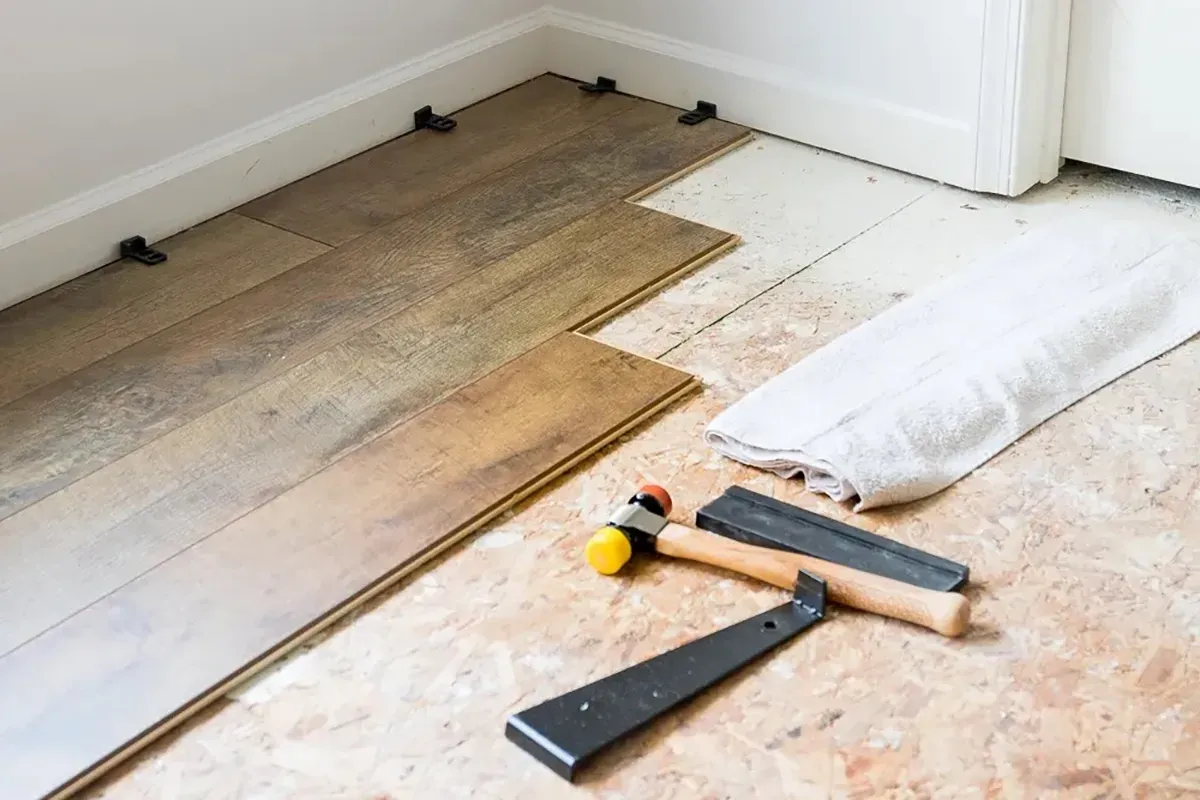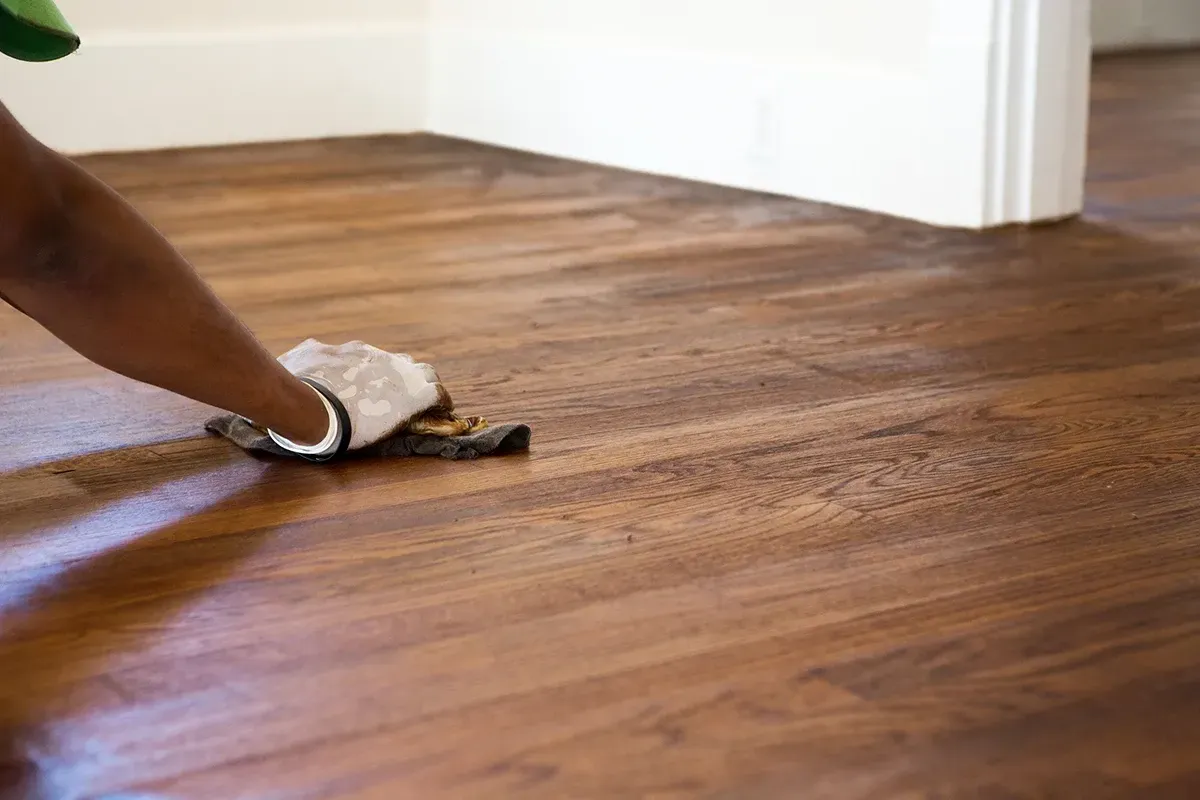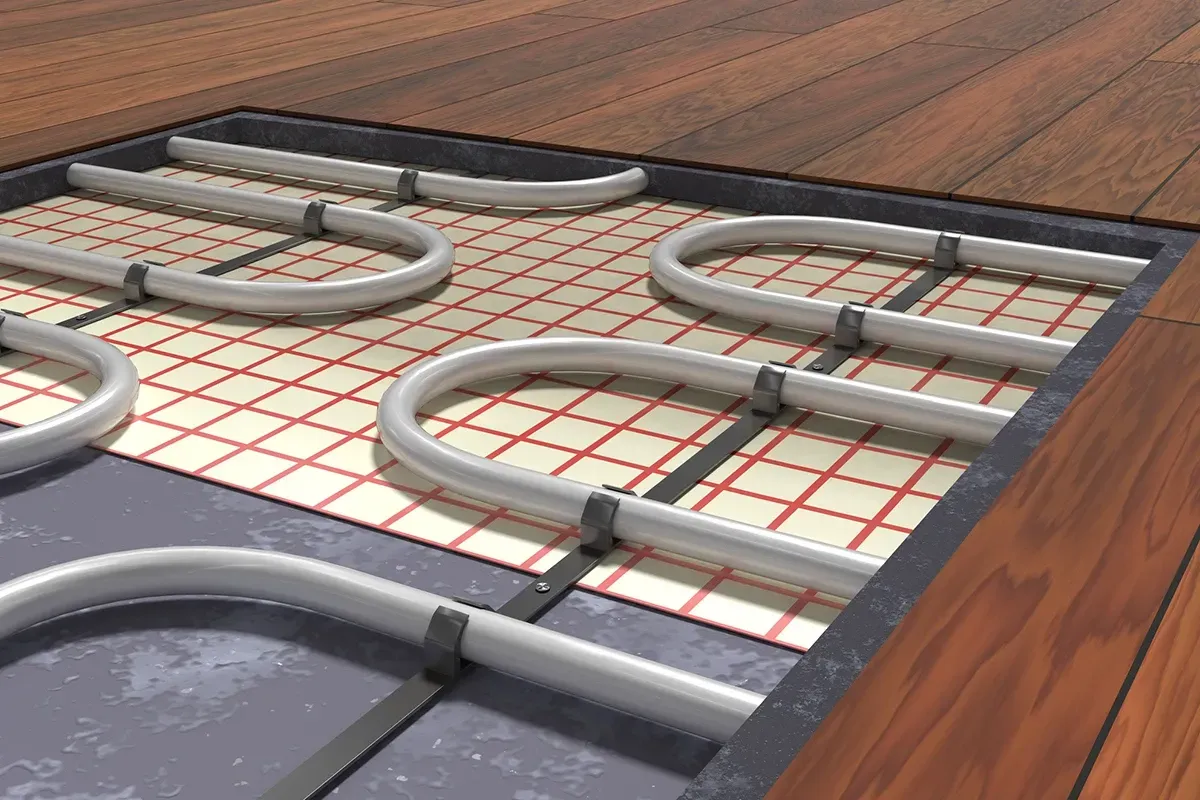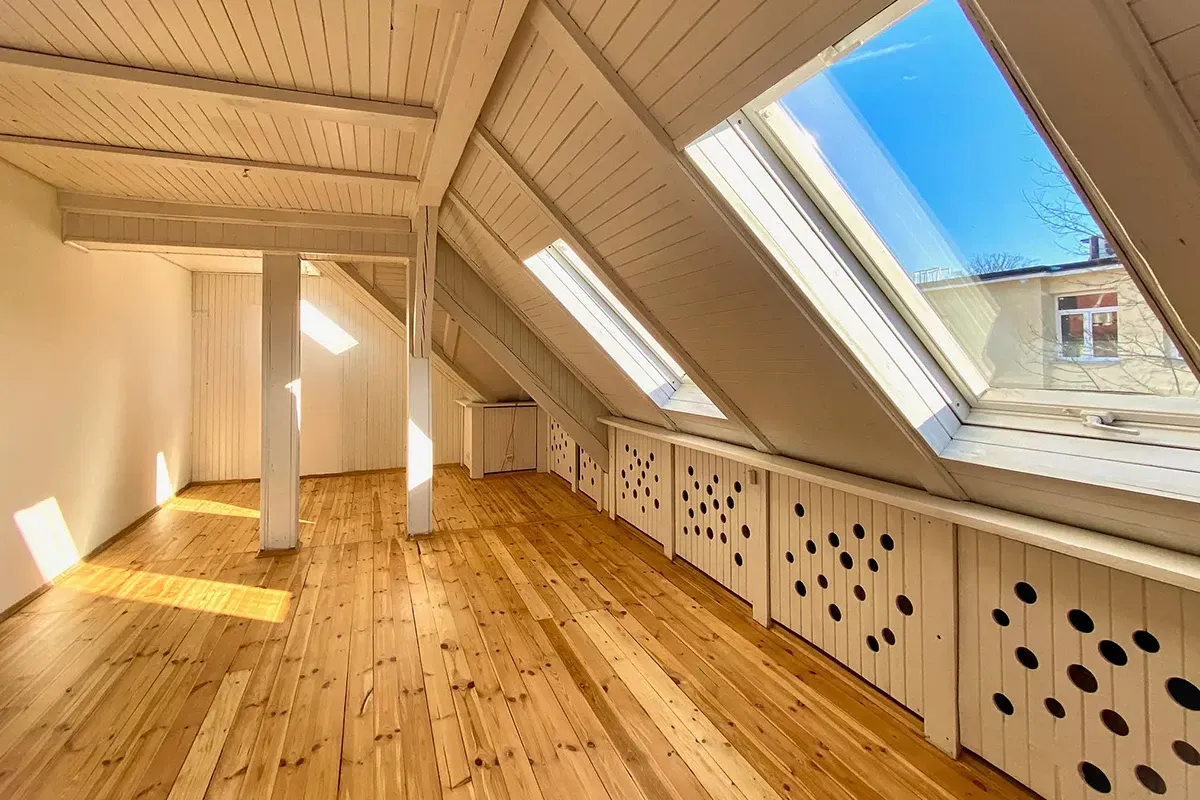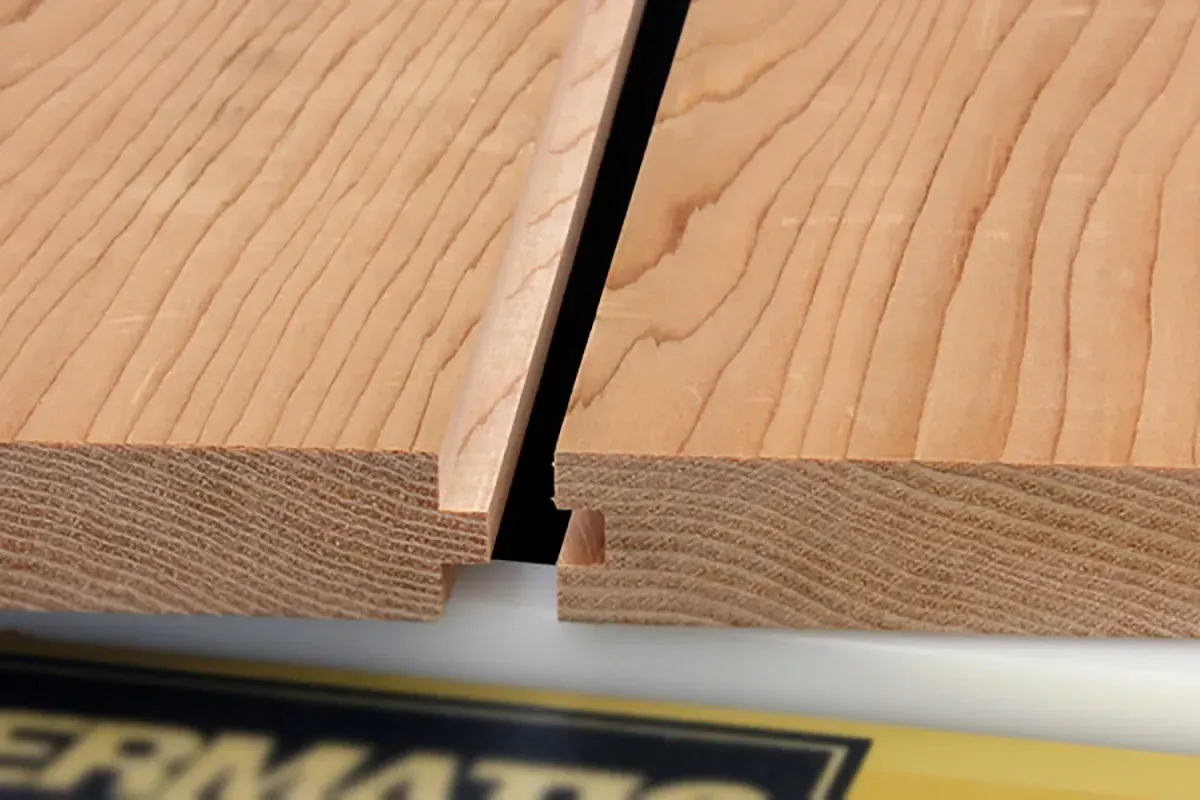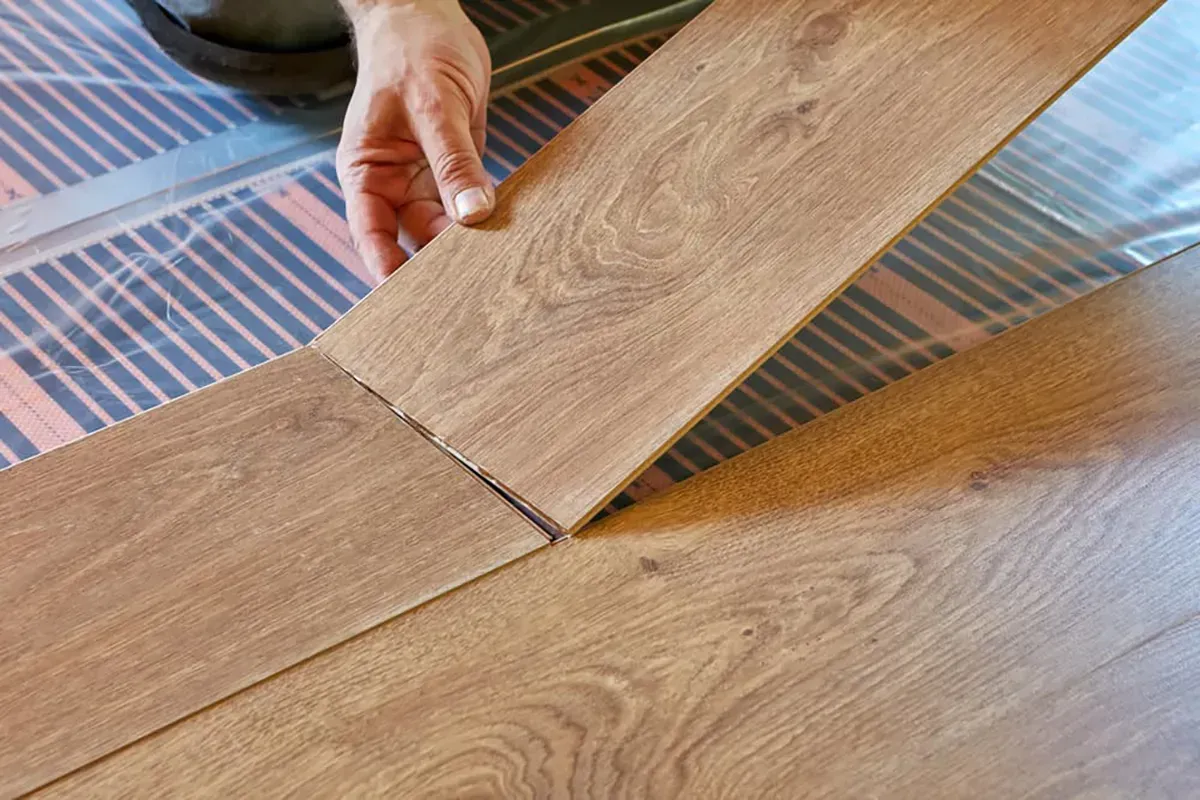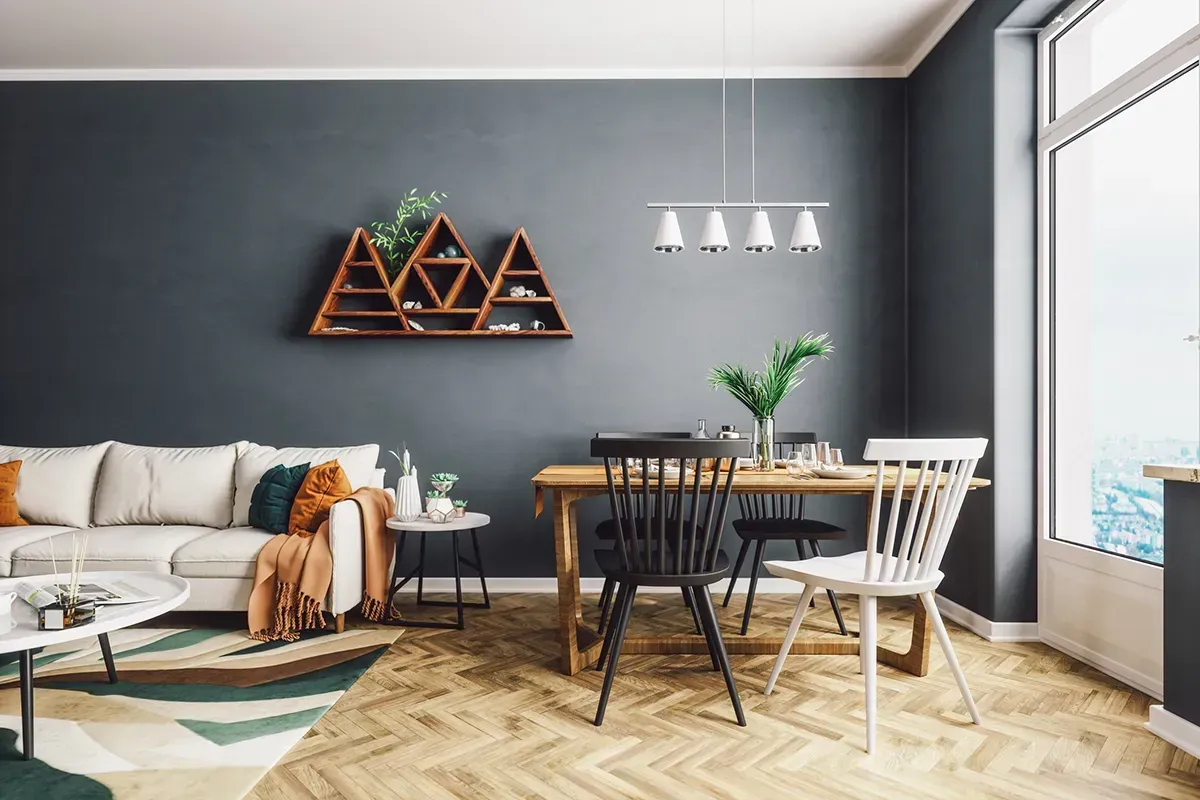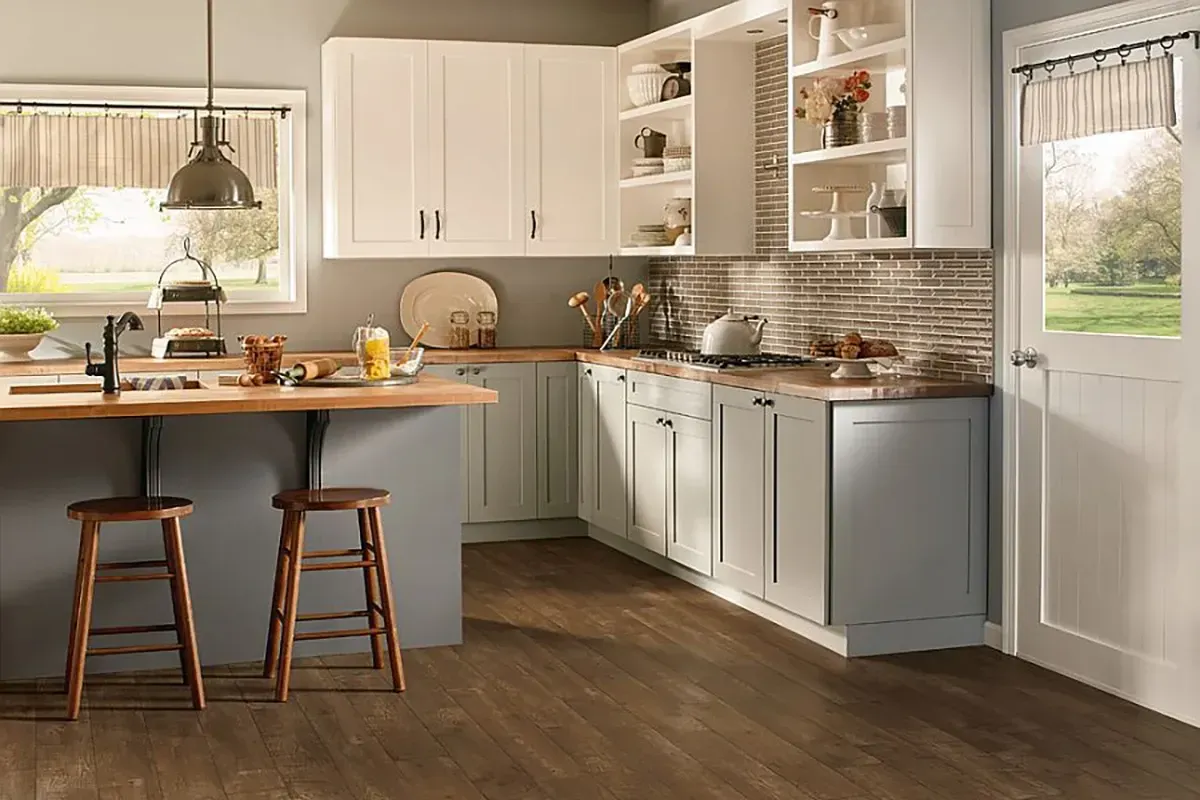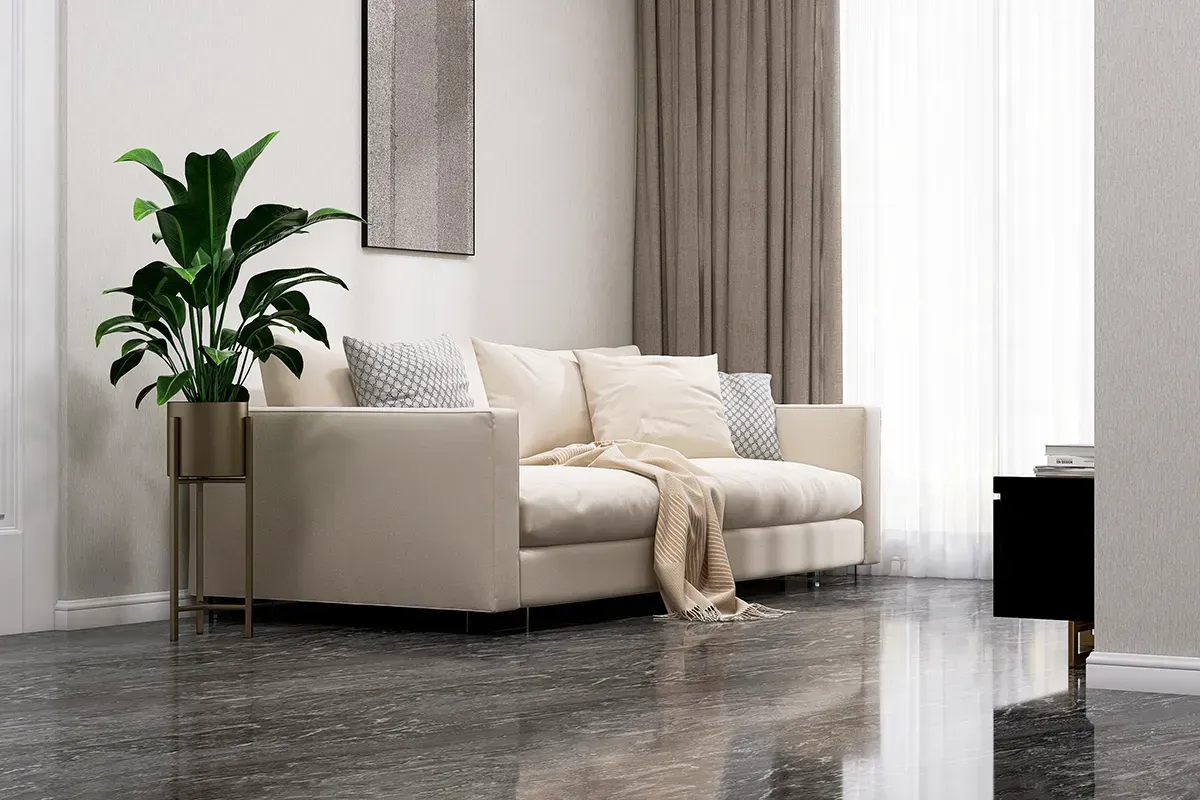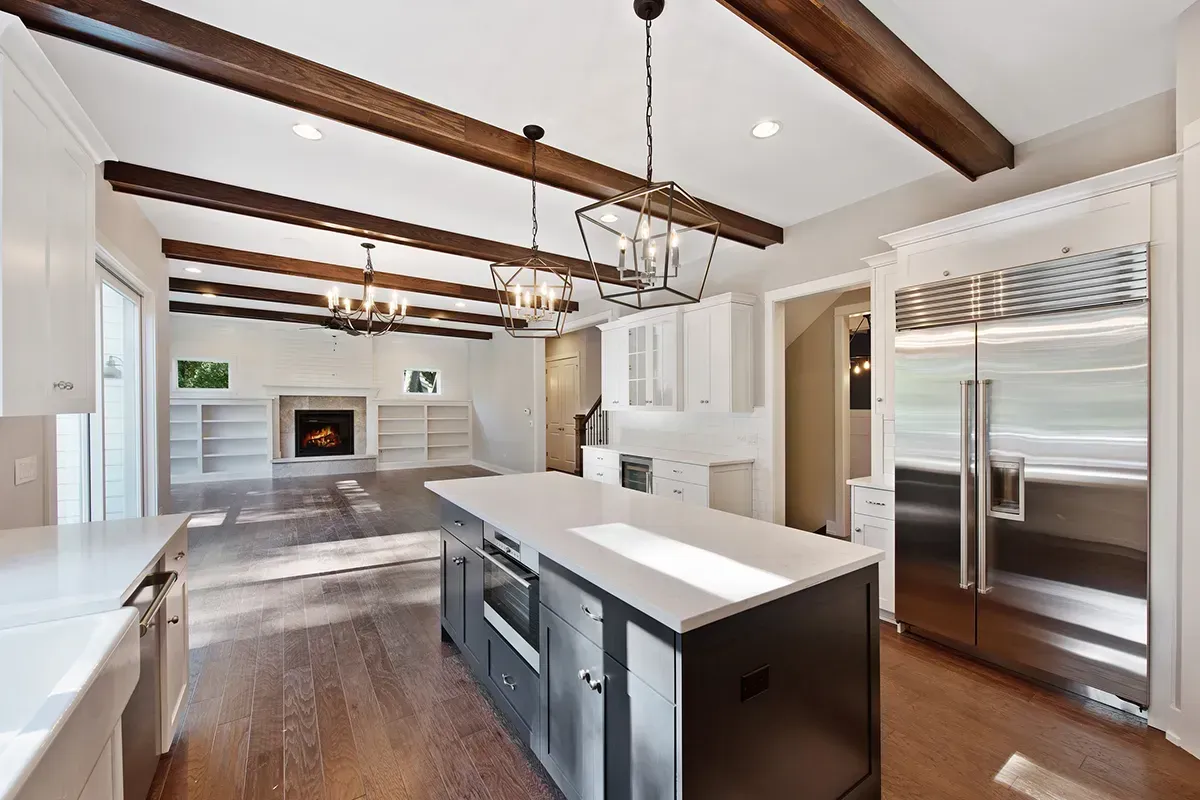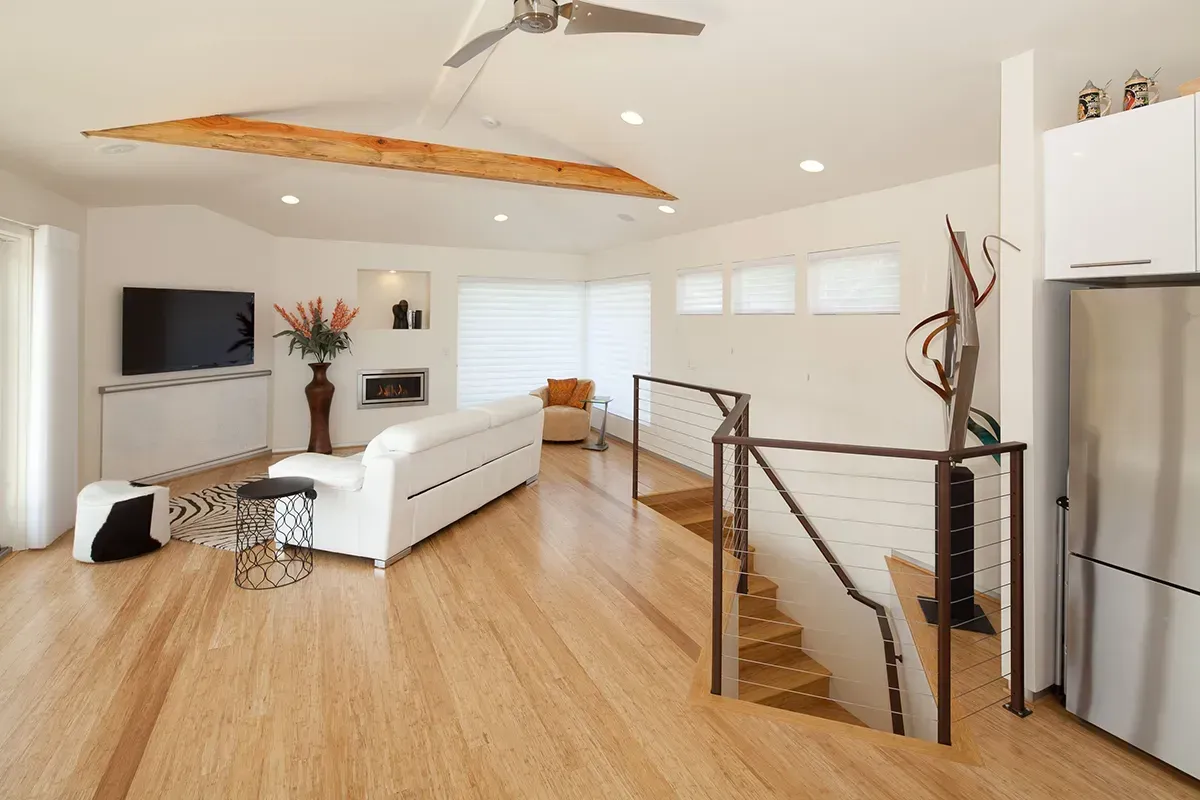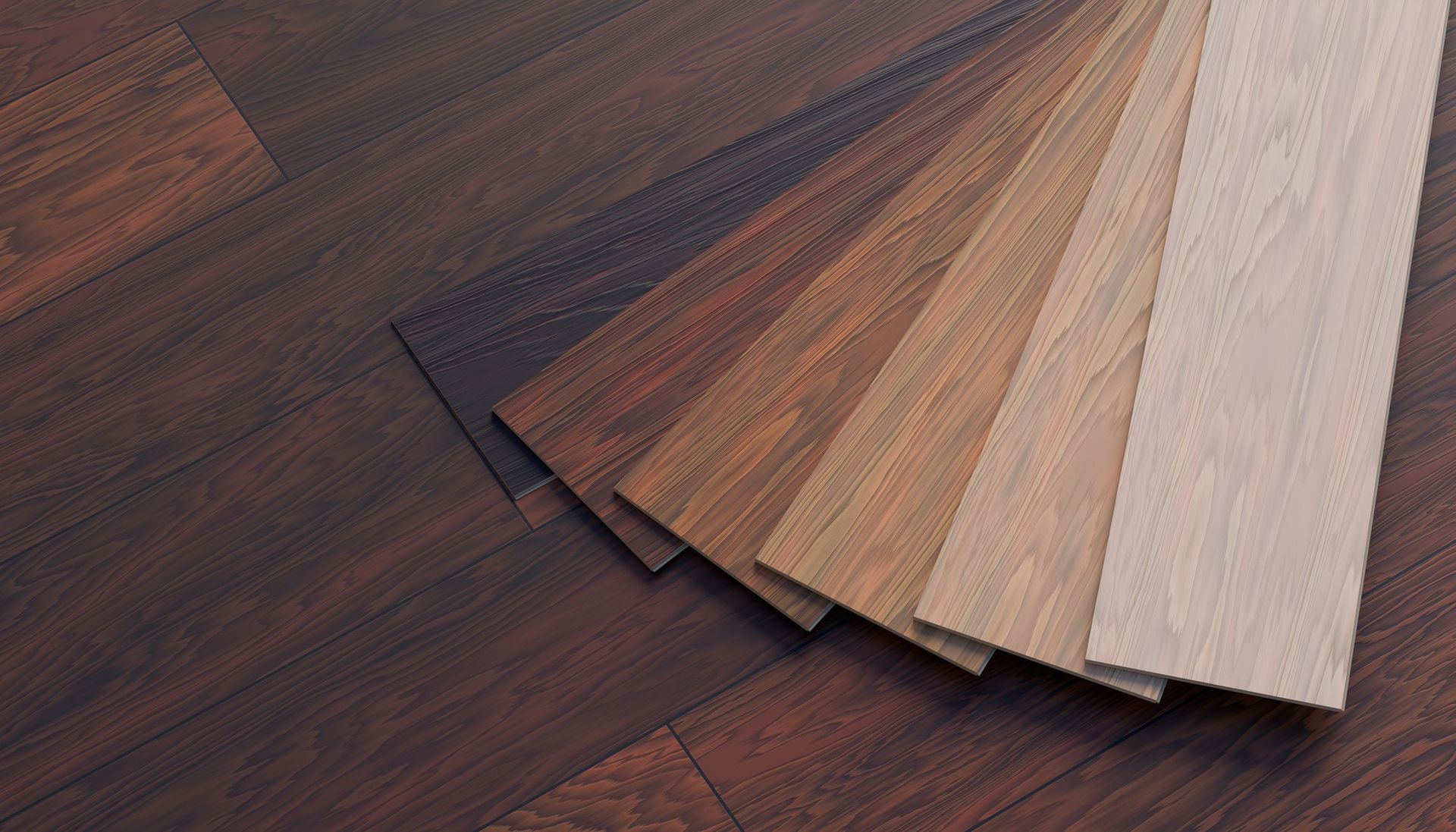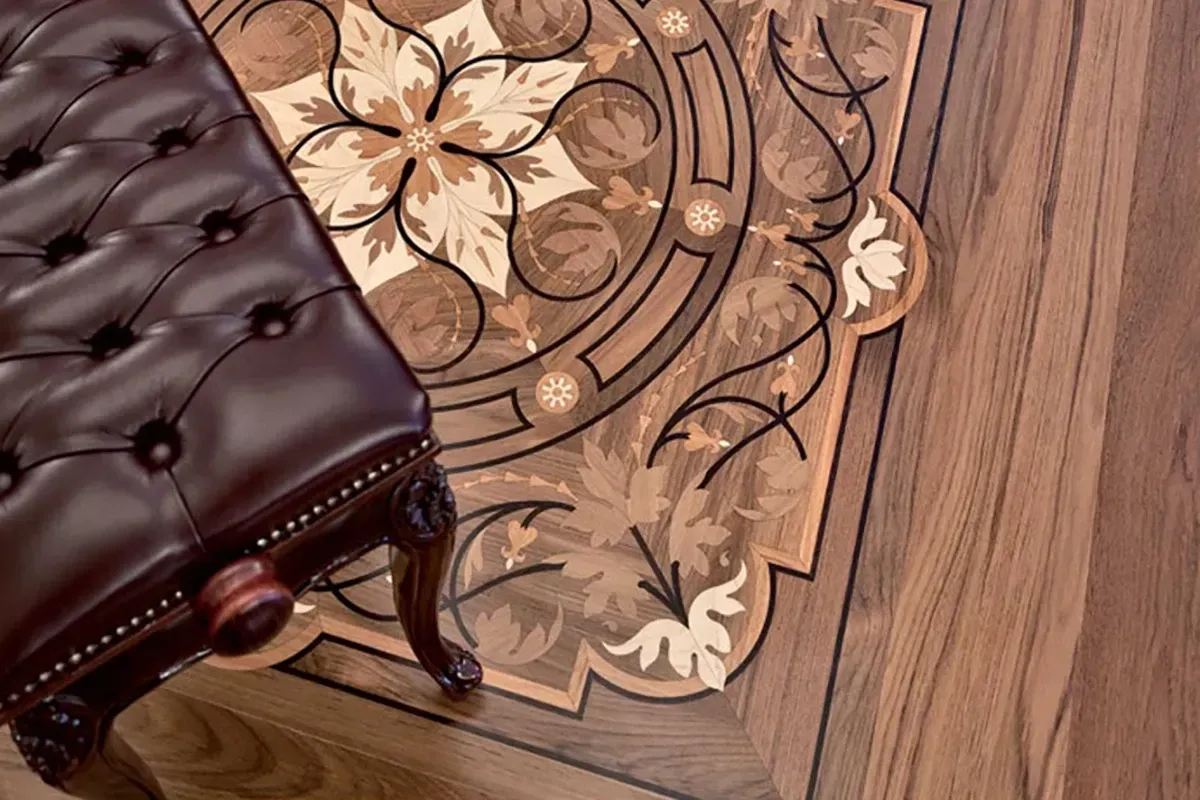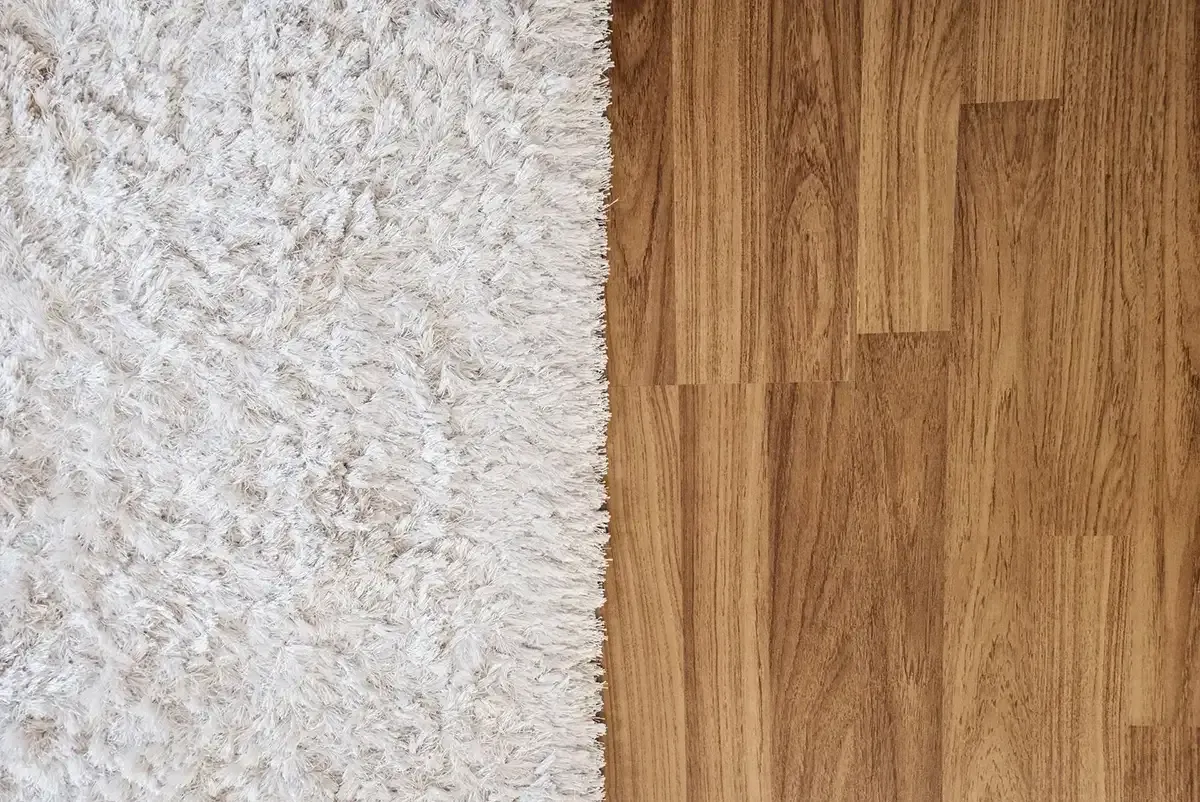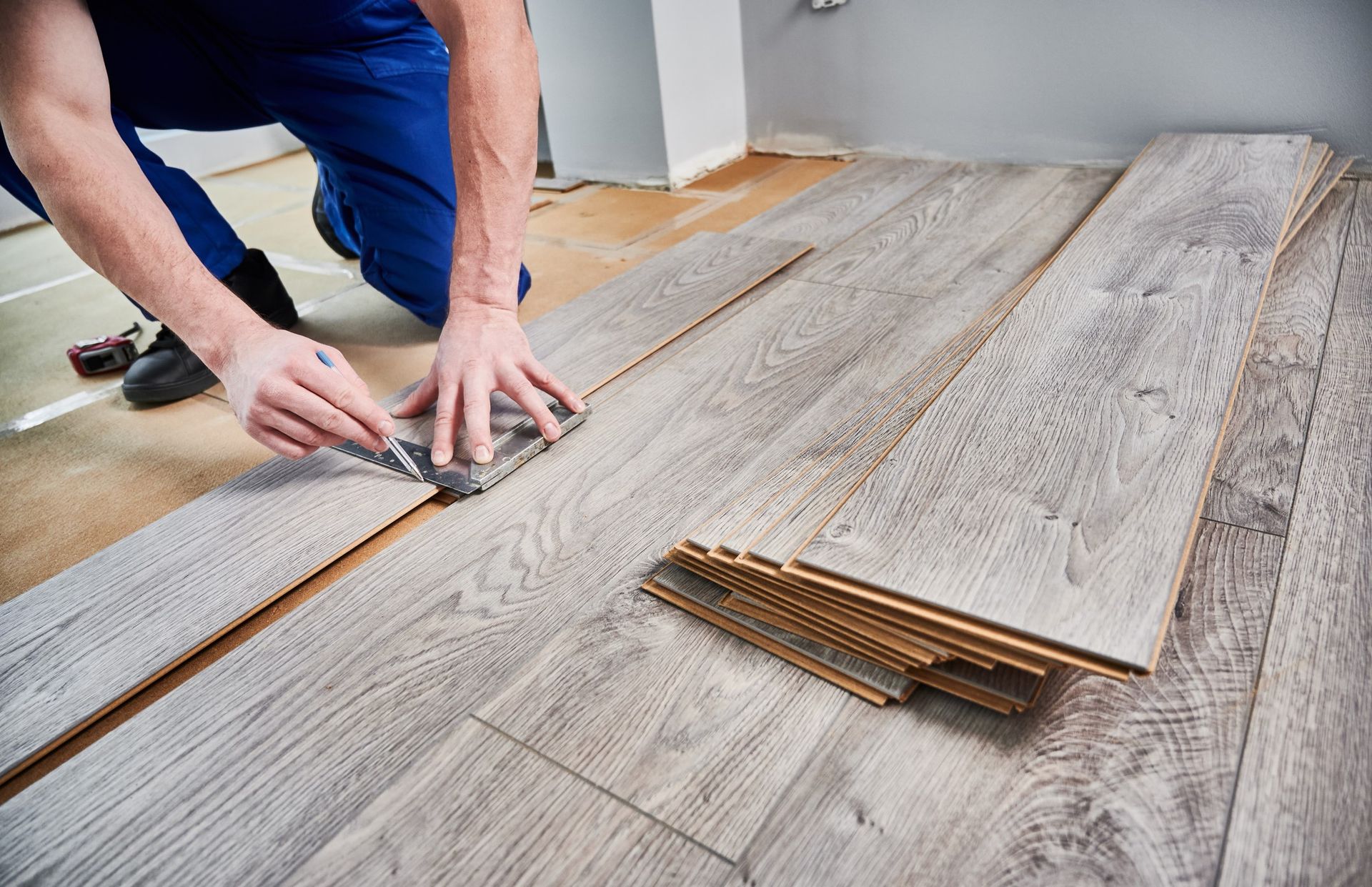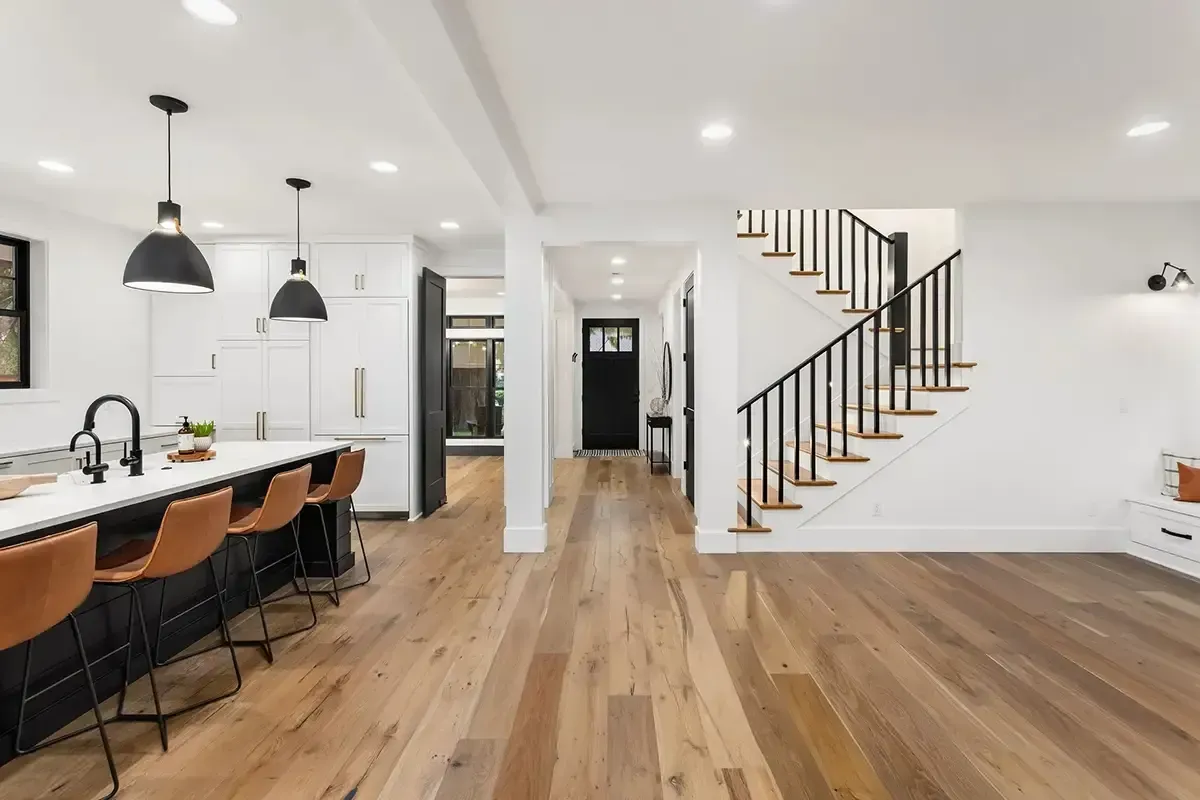Best Flooring for Basements: Which Option is Right for You?
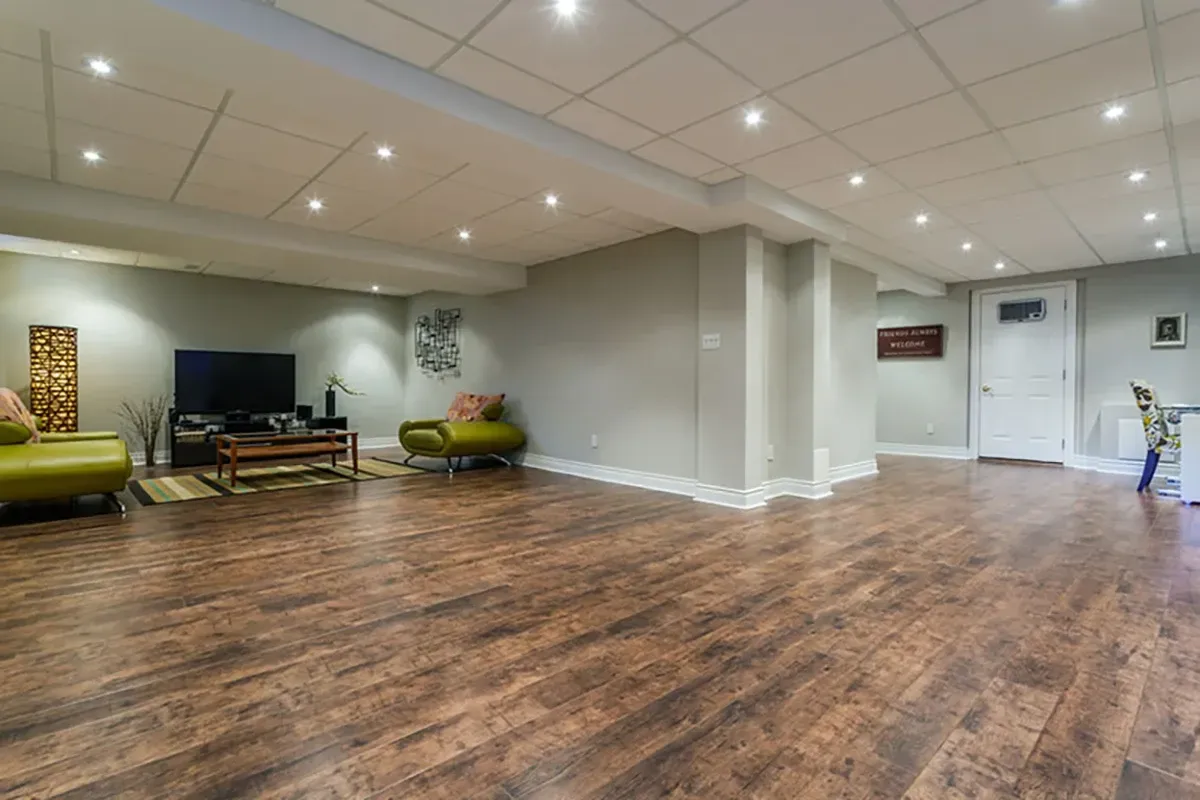
Choosing the
best flooring for your basement can be challenging. Basements typically have higher humidity and are more prone to water exposure than other areas in the home, which makes selecting the right materials essential. Today’s options include waterproof laminate, luxury vinyl plank (LVP), luxury vinyl tile (LVT), engineered hardwood, and engineered bamboo—all of which offer durability, moisture resistance, and a wide variety of styles. In this basement flooring guide, we’ll look at the pros and cons of each type to help you create a basement space that is as functional as it is beautiful.
Key Considerations for Basement Flooring
Before diving into the basement flooring types, it’s important to understand what factors should guide your decision.
- Moisture Resistance: Basements are prone to moisture, which can lead to mold, mildew, and other long-term issues. Basement flooring materials that can withstand moisture are essential to avoid warping or damage, especially in places with high humidity or potential water exposure.
- Durability: Basements are often used for storage, as family spaces, or even as rental units, so the flooring must be durable. The right flooring should resist wear, scratching, and heavy foot traffic.
- Style and Comfort: Basements no longer have to feel like unfinished or underutilized spaces. Basement flooring that brings warmth and style makes the space feel like a true extension of the home’s living space, while comfort-enhancing features, like insulation, can make it more inviting year-round.
Best Flooring for Basements: 5 Great Options
1. Waterproof Laminate
Waterproof laminate flooring combines the look of wood with enhanced water resistance. Unlike traditional laminate, which can be susceptible to swelling from moisture, waterproof laminate is designed to withstand spills and humidity better. It has a multi-layer structure, with a protective layer on top that shields against scratches and minor water exposure. Laminate is the best flooring for basements with minimal moisture issues where the look of wood is desired but full waterproofing isn’t required.
Pros:
- Affordable alternative to hardwood flooring
- Realistic wood-like appearance
- Scratch-resistant and relatively easy to install
Cons:
- Not fully waterproof, so it’s best in basements with minimal water exposure
- Limited design options compared to LVP
Want to see some before and after shots? Check out a recent PacMat Laminate installation.
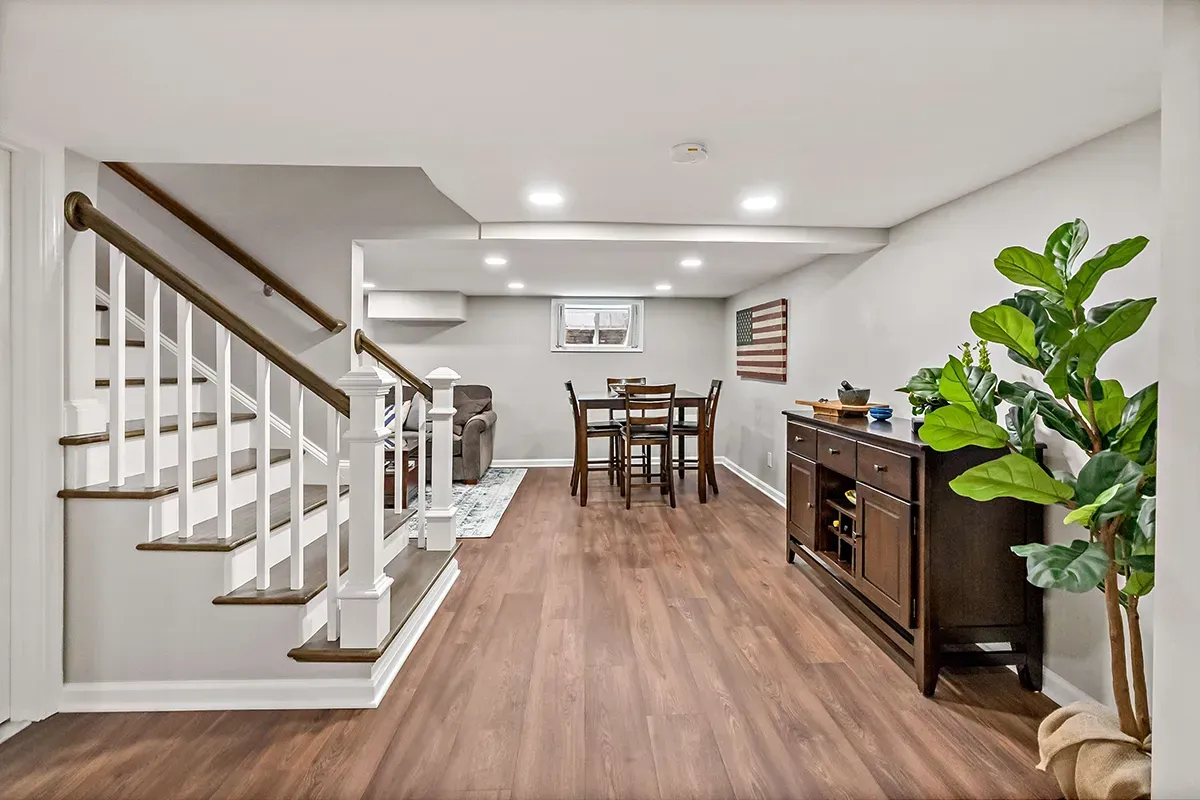
2. Luxury Vinyl Plank (LVP) - Waterproof Basement Flooring
Luxury vinyl plank (LVP) flooring has become one of the most popular options for basements due to its combination of style and performance. Made from multiple layers, LVP is a great choice for anyone looking for waterproof basement flooring and offers a durable surface that can mimic the appearance of wood or stone. Installation is relatively simple, making it an appealing option for DIY enthusiasts or quick renovations. LVP is the best flooring for basements with high moisture levels or areas with potential water exposure, like below-ground spaces or locations near water sources.
Pros:
- Fully waterproof, making it ideal for basements prone to moisture
- Highly durable and resistant to scratches and dents
- Wide range of styles and textures, mimicking hardwood or stone
Cons:
- Slightly more costly than waterproof laminate or basic vinyl
- May feel slightly cold underfoot without underlayment
- Due to thinness of vinyl products, extra subfloor prep is often required
- Layout limitations due to manufacturers installation guidelines
3. Luxury Vinyl Tile (LVT) - Waterproof Basement Flooring
Similar to LVP, luxury vinyl tile (LVT) is another excellent type of waterproof flooring for your basement, but in a tile format. LVT often mimics stone or ceramic tile, making it a stylish option for basements where a tile look is preferred. It’s easier on the feet than traditional tile and less cold to the touch, adding comfort to basement spaces. LVT is the best basement flooring for homeowners who prefer a tiled look but want a softer, warmer feel.
Pros:
- Fully waterproof, tile-like appearance, comfortable underfoot
- Excellent for areas prone to water exposure
- Easy to maintain and clean
Cons:
- Can feel cold without underlayment in unheated spaces
- Limited warmth compared to wood-based flooring
- Due to thinness of vinyl products, extra subfloor prep is often required
- Layout limitations due to manufacturers installation guidelines
- Limited olor selection compared to LVP
4. Engineered Hardwood
Engineered hardwood is a layered product made of real wood veneer on top of a plywood or fiberboard base. While it isn’t fully waterproof, engineered hardwood moisture-resistant than and can withstand minor humidity fluctuations, which is why it’s sometimes recommended for basements. However, it’s best suited for dry, temperature-controlled basements. Engineered hardwood is the best flooring option for finished basements with stable humidity and temperature, where a high-end wood look is desired.
Pros:
- Offers the aesthetic appeal of real wood
- Better humidity resistance than traditional hardwood
- Adds value and warmth to a basement space
Cons:
- Not fully waterproof, so it’s best for basements with controlled humidity
- Higher price point compared to other options like LVP
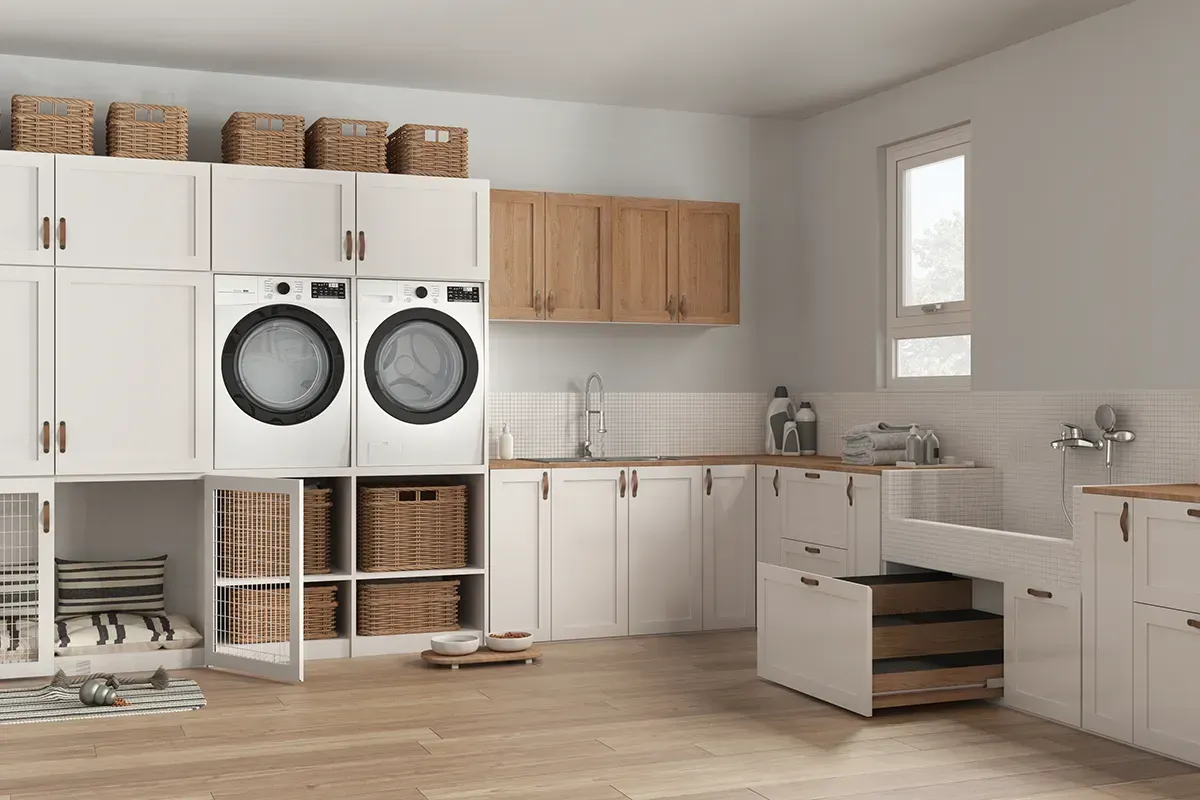
5. Bamboo Flooring
Bamboo flooring is an eco-friendly option that’s stronger and more moisture-resistant than many other natural wood options. For basement settings, strand-woven bamboo is the best choice due to its density and durability. While not completely waterproof, bamboo can handle humidity better than traditional hardwood. Bamboo is a great basement flooring choice for eco-conscious homeowners who want a natural look in a relatively dry basement space.
Pros:
- Eco-friendly and highly renewable
- Durable, moisture-resistant, and stylish
- Softer feel underfoot compared to traditional tile or vinyl
Cons:
- Requires a relatively dry basement with controlled humidity
- Can scratch under heavy traffic
More Basement Flooring Tips
- Vapor Barrier and Underlayment: Before installing any flooring in a basement, consider laying a vapor barrier or underlayment. These barriers help prevent moisture from seeping up through the floor and provide added insulation and comfort.
- Climate Control: Installing a dehumidifier or ensuring good ventilation in your basement can help keep moisture levels down. Proper climate control reduces the risk of mold growth and prolongs the life of your flooring.
- Subfloor Prep: Make sure your basement floor is relatively flat, clean, and dry before installation. Extremely unneven floors can lead to improper installation and damage to flooring materials over time. For some options like engineered hardwood, a concrete subfloor may require special underlayment sheeting, adhesives or padding.
- Consider Flooring Style for Usage: If your basement is used as a family room, opt for a flooring material with added warmth and comfort, like LVP or engineered hardwood. For utility or storage areas, waterproof laminate or LVT may be more practical and cost-effective.
Basement Flooring FAQ:
1. What is the best type of flooring for a basement?
The best flooring for a basement is waterproof or water-resistant to withstand moisture. Popular options include waterproof laminate, luxury vinyl tile (LVT), luxury vinyl plank (LVP), and engineered bamboo, each offering durability, style, and moisture resistance.
2. Which basement flooring option is the most budget-friendly?
Typically, LVT and LVP are more affordable than waterproof laminate or engineered bamboo. Luxury vinyl options offer excellent durability and water resistance at an accessible price point, making them popular for budget-conscious basement renovations.
3. Can I install basement flooring directly over concrete?
Yes, installing flooring directly over concrete in a basement is common, but proper preparation is essential. Concrete can release moisture, which can damage certain types of flooring. To protect against this, it’s best to apply a moisture barrier or underlayment before installing your flooring. Waterproof laminate, LVT, LVP, and engineered bamboo are all suitable for installation over concrete, provided that moisture control measures are in place.
4. Is it necessary to install a moisture barrier under basement flooring?
Yes, a moisture barrier is recommended under basement flooring to prevent water from seeping through the subfloor and damaging your floor. This is especially important in basements, where moisture levels are typically higher.
5. Can I install radiant heating in the basement?
Many waterproof laminate, LVT, LVP, and engineered bamboo floors are compatible with radiant heating systems, but it’s essential to check the manufacturer’s guidelines. Some materials may have specific requirements to ensure safe and effective heating.
6. How long do LVT, LVP, and waterproof laminate floors last in basements?
With proper care, LVT, LVP, and waterproof laminate can last 15-20 years or more in a basement environment. Engineered bamboo also has a similar lifespan when maintained well.
7. Are these flooring options environmentally friendly?
Many LVT and LVP options are manufactured using recycled materials and are recyclable at the end of their life cycle. Engineered bamboo is an eco-friendly choice, as bamboo is a fast-growing renewable resource. Look for products with low VOC emissions to reduce indoor air pollutants.
Conclusion
Selecting the best flooring for a basement requires balancing durability, moisture resistance, and style. Waterproof laminate, LVP, LVT, engineered hardwood, and engineered bamboo each offer unique features suited to different needs and aesthetic preferences. By assessing your basement’s specific conditions and planning for moisture control, you can create a space that’s not only functional but welcoming. With the right flooring, your basement can truly become a valuable and versatile extension of your home.

